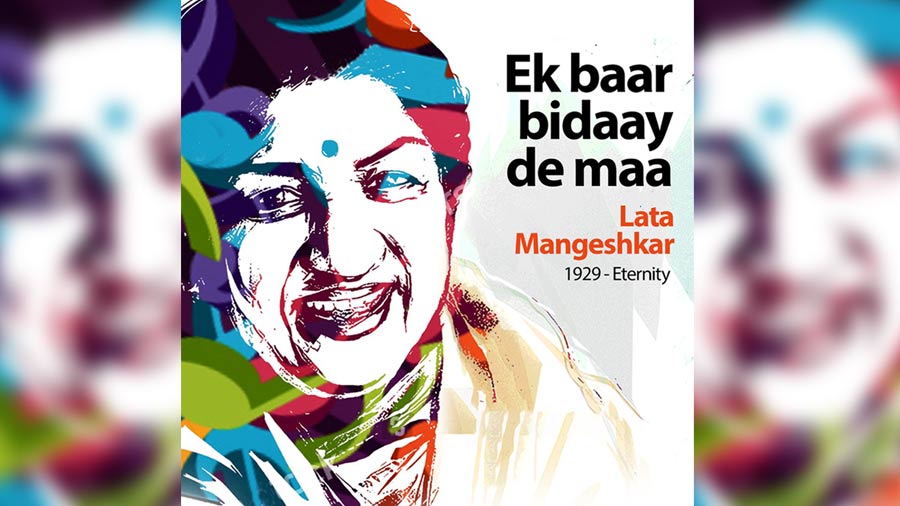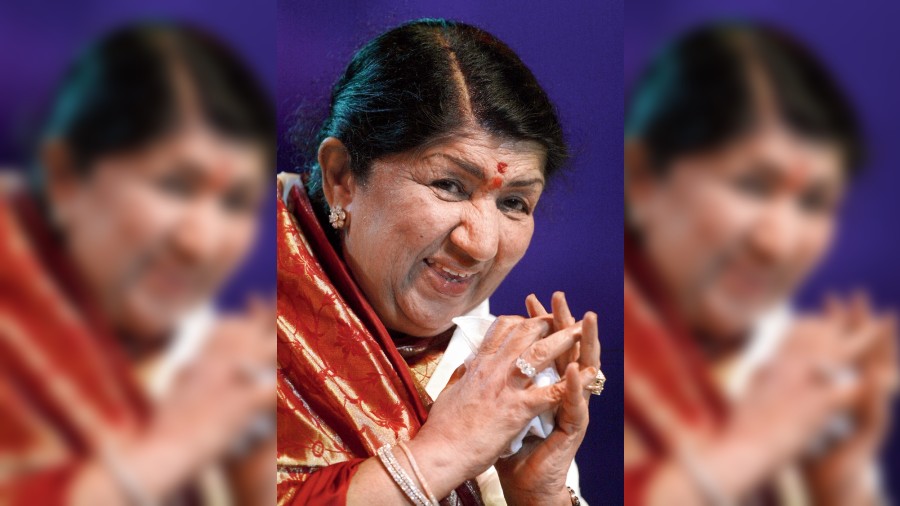Lata may have passed on but a part of her will remain with me.
She was singing when my father was in his early 20s; she connected our generations.
She was singing before I was born; her voice was seeded into my umbilical consciousness.
She was singing when I was a child; her voice I grew with.
She was singing when I was an adolescent; hers was the voice through which I wooed.
She was singing when I married; she crooned at my reception.
But there is a deeper personal level at which Lata will continue to live. Over the decades, she has counselled, cajoled, romanced, provoked and inspired.
In moments of spiritual disorientation, her ‘Allah tero naam’ has moored; the last line (Balwaano ko de-de gyaan) speaks truth to power.
In moments of secular despair, she has spoken out for the silent minority in ‘Unko yeh shikaayat hai ke hum kuch nahin kehte’: ‘Kuch kehne pe toofaan utha leti hai duniya, Ab is pe qayamat hai ke hum kuch nahin kehte.’
My need for grace Lata has articulated with ‘Bekas pe karam keejiye sartaaj-e-Medina.’
When I need to envision Husain the Martyr, I settle at Lata for inspiration: ‘Jabeen sajda karte hi karte gayi, haq-e-bandagi hum adaa kar chale.’
My pursuit of gratitude for all those who gave their lives so that I could be writing this today has been encapsulated in ‘Ai mere watan ke logo, zara aankh mein bhar lo paani’ (The climax lines: ‘Jab ant samay aaya toh, keh gaye ke ab marte hain, khush rehna desh ke pyaaron, ab hum toh safar karte hain’.)
In the nostalgia of my first-born’s birth, Lata’s ‘Koi mere dil mein khushi ban ke aaya, andhera tha ghar, raushni ban ke aaya’ continues to make me misty 26 years later.
In moments when I need to believe that my existence matters, Lata’s ‘Rahein na rahein hum, mehka karenge, ban ke kali, ban ke saba baagh-e-wafaa mein’ does it convincingly.
When I need to escape my occasional excess-induced guilt, Lata soothes with her ‘Hum janam bitaa kar jayenge, tum janam ganvaa kar jaaoge’ (from ‘Sansaar se bhaage phirte ho’).
When I hear of couples dithering to marry in the face of parental opposition, Lata provokes with her ‘Hum ne dil de bhi diya ahd-e-wafaa le bhi liya, aap ab shauq se de-lein jo sazaa dete hain’ (from ‘Jurme e ulfat pe hamein log sazaa dete hain’).
When I need a voice to express the zulm-o-sitam across genders, Lata’s ‘Hum hain mataaye kocha-o-baazar ki tarah, uthti hai har nigaah khareedaar ki tarah’ remains haunting.
When I need to convince myself about the inequity of this consumption-driven world, Lata’s ‘Chaand milta nahin sub ko sansaar mein, hai diya hi bahut raushni ke liye’ (from ‘Chhor de saari duniya kisi ke liye’) balances.
When I remember being in the West Indies in 1989, the song ‘Aaj socha to aansoo bhar aayein’ (perpetually spooled in my mind through that tour for no particular reason) continues to live.
When I need to express commitment to my beloved, I turn to Lata’s ‘Aapki manzil hoon main, meri manzil aap hain, kyun main toofaan se daroon, mera saahil aap hain.’
When I romance my beloved, I sing ‘Chhupa lo yun dil mein pyaar mera, ke jaise mandir mein lau diye ki.’
When I need to re-appraise transactional priorities, Lata heals with ‘Hai isi mein pyaar ki aabroo, woh jafaa karein main wafaa karoon.’
When I am pitted against adversity, Lata enhances hope: ‘Haalaat ke teeron se chhalni hai badan apne, paas aao ke seenon ke kuch zakhm toh bhar jaayein’
When I need to calm my restless mind, Lata’s voice leads me into a benign space with ‘Kuch dil ne kahaa, kuch bhi nahin, kuch dil ne suna, kuch bhi nahin, aisi bhi baatein hoti hain, aisi bhi baatein hoti hain.’
When I need peace, Lata’s lines from ‘Phaili hui hain sapno ki baahein’ (‘Dekheyn na peechhey mud ke nigaahein, aaja chal de kahin duur’) give me a sense of timelessness.
Sahir wrote possibly decades ago for me: ‘Kaun rota hai kisi aur ki khaatir ai dost, subko apni hi kisi baat pe rona aaya.’

